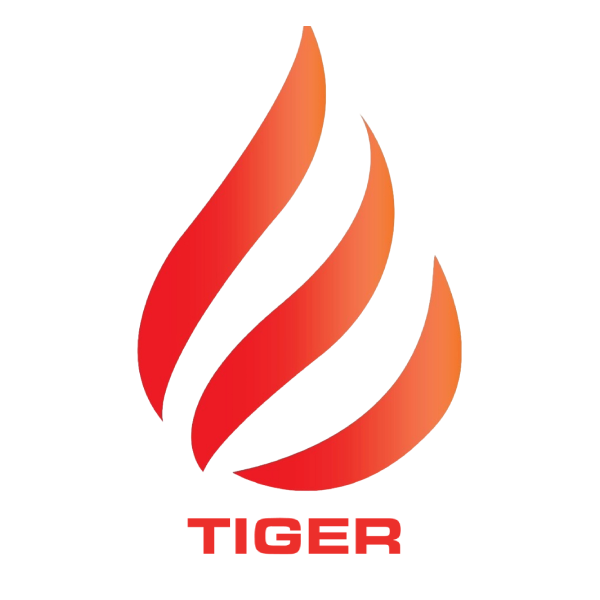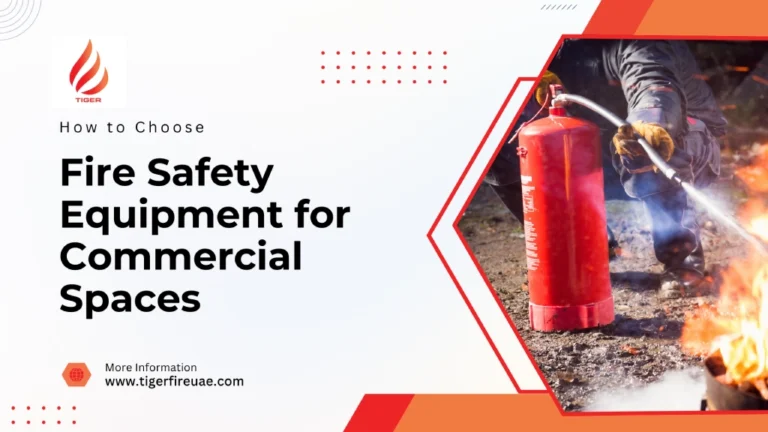Introduction
Fire safety is a critical responsibility for commercial property owners in the UAE. From office buildings and retail spaces to warehouses and industrial units, selecting the right fire safety equipment ensures compliance with local regulations, protects lives, and minimizes property damage. With evolving fire safety standards in the UAE, it’s important to make informed decisions when investing in equipment for your business.
This comprehensive guide will cover all aspects of choosing fire safety equipment for commercial spaces in the UAE, including types of equipment, compliance requirements, installation best practices, and employee training.
Understanding Fire Safety Requirements in the UAE
The UAE has a well-defined framework for fire safety through the UAE Fire and Life Safety Code of Practice. Commercial buildings must adhere to these regulations, which cover:
- Minimum fire safety equipment requirements based on building type and size
- Fire alarm and detection system standards
- Fire suppression system installation guidelines
- Emergency exits, signage, and lighting requirements
Key Insight: Compliance is not only a legal obligation but a practical necessity. Non-compliance can result in heavy fines, business closure, and, most importantly, endanger lives. According to recent UAE government data, businesses with fully compliant fire safety systems reduce fire-related incidents by up to 70%.
Types of Fire Safety Equipment for Commercial Spaces
A robust fire safety plan includes a combination of detection, suppression, and protection equipment. Here’s a detailed breakdown:
Fire Extinguishers
Fire extinguishers are the first line of defense in any fire emergency. Choosing the right type is crucial:
- Class A: Ordinary combustibles such as paper, wood, and cloth
- Class B: Flammable liquids like oils, paints, and solvents
- Class C: Electrical fires
- Class D: Combustible metals
- Class K: Kitchen fires involving cooking oils and fats
Tip: Install fire extinguishers in easily accessible areas and ensure staff know their locations. UAE regulations recommend one fire extinguisher per 200 square meters of commercial space.
Fire Detection and Alarm Systems
Early detection saves lives and property. Consider these essential systems:
- Smoke Detectors: Trigger alarms when smoke is detected
- Heat Detectors: Ideal for kitchens or areas with steam, where smoke detectors might give false alarms
- Manual Call Points: Allow occupants to manually activate alarms
- Voice Evacuation Systems: Provide clear, audible instructions during emergencies
A well-planned detection system ensures rapid response, reducing potential damages significantly.
Fire Suppression Systems
Automatic suppression systems are vital for areas with high fire risks. These include:
- Sprinkler Systems: Widely used for offices, warehouses, and retail spaces
- Clean Agent Systems: Ideal for server rooms or areas with sensitive equipment
- Foam Systems: Effective in chemical storage or industrial environments
Example: A retail store in Dubai using a combined sprinkler and clean agent system reported minimal damage during a recent fire incident because the fire was controlled within minutes.
Emergency Lighting and Signage
Clear visibility during a fire emergency is critical. Emergency lighting and signage include:
- Illuminated exit signs
- Directional lights along evacuation paths
- Battery-backed emergency lights for power failures
Best Practice: Regularly test all emergency lighting and replace batteries annually to ensure reliability.
Fire Doors and Compartmentation
Fire-rated doors and walls help contain fires, preventing rapid spread and allowing safe evacuation.
- Fire doors must be self-closing and kept unobstructed
- Walls should be properly maintained to maintain fire compartmentation
Tip: Conduct quarterly inspections to ensure doors and walls remain compliant and functional.
Installation and Maintenance Best Practices
The effectiveness of fire safety equipment relies on proper installation and maintenance:
- Always hire certified professionals for installation
- Schedule regular inspections and servicing
- Replace outdated or damaged equipment immediately
Statistics: Reports show that 50% of fire extinguisher failures occur due to lack of maintenance, highlighting the importance of regular checks.
Employee Training and Fire Drills
Even with advanced equipment, employees need proper training to act efficiently in emergencies:
- Conduct annual fire drills to simulate real scenarios
- Train staff on fire extinguisher usage
- Educate employees on evacuation routes and assembly points
A well-prepared team can significantly reduce injuries and damage during a fire.
Selecting a Reliable Fire Safety Supplier
Partnering with a certified fire safety supplier ensures:
- High-quality, compliant equipment
- Installation, maintenance, and servicing support
- Employee training programs
Tip: Look for suppliers with experience in the UAE market who understand local regulations and compliance standards.
Cost Considerations
While safety should always be the priority, understanding the costs of fire safety equipment is essential for budgeting:
- Fire extinguishers: AED 150 – AED 1,500 depending on type and size
- Fire alarm systems: AED 5,000 – AED 50,000 depending on building size
- Sprinkler and suppression systems: AED 10,000 – AED 100,000+ depending on complexity
Pro Tip: Investing in high-quality equipment can save your business from much higher costs associated with fire damage and insurance claims.
Latest Fire Safety Trends in UAE
With the evolution of technology, fire safety equipment now includes smart and IoT-enabled devices:
- Smart smoke detectors that send alerts to mobile devices
- Automated fire suppression systems integrated with building management systems
- Predictive maintenance tools that monitor equipment status in real-time
Integrating these solutions can enhance safety and compliance while improving operational efficiency.
Conclusion
Choosing how to choose fire safety equipment for commercial spaces in the UAE is a critical decision that goes beyond mere regulatory compliance. Properly selected and maintained fire safety equipment safeguards not only your employees and customers but also your assets, reputation, and long-term business operations.
A comprehensive fire safety strategy starts with understanding the specific risks in your commercial space. Whether you operate a retail store, office building, industrial warehouse, or hospitality facility, the types of fire hazards may vary significantly. By selecting the right fire extinguishers, fire detection and alarm systems, suppression systems, emergency lighting, signage, and fire doors, you create a layered defense that minimizes potential damage and ensures quick, effective responses in case of an emergency.

